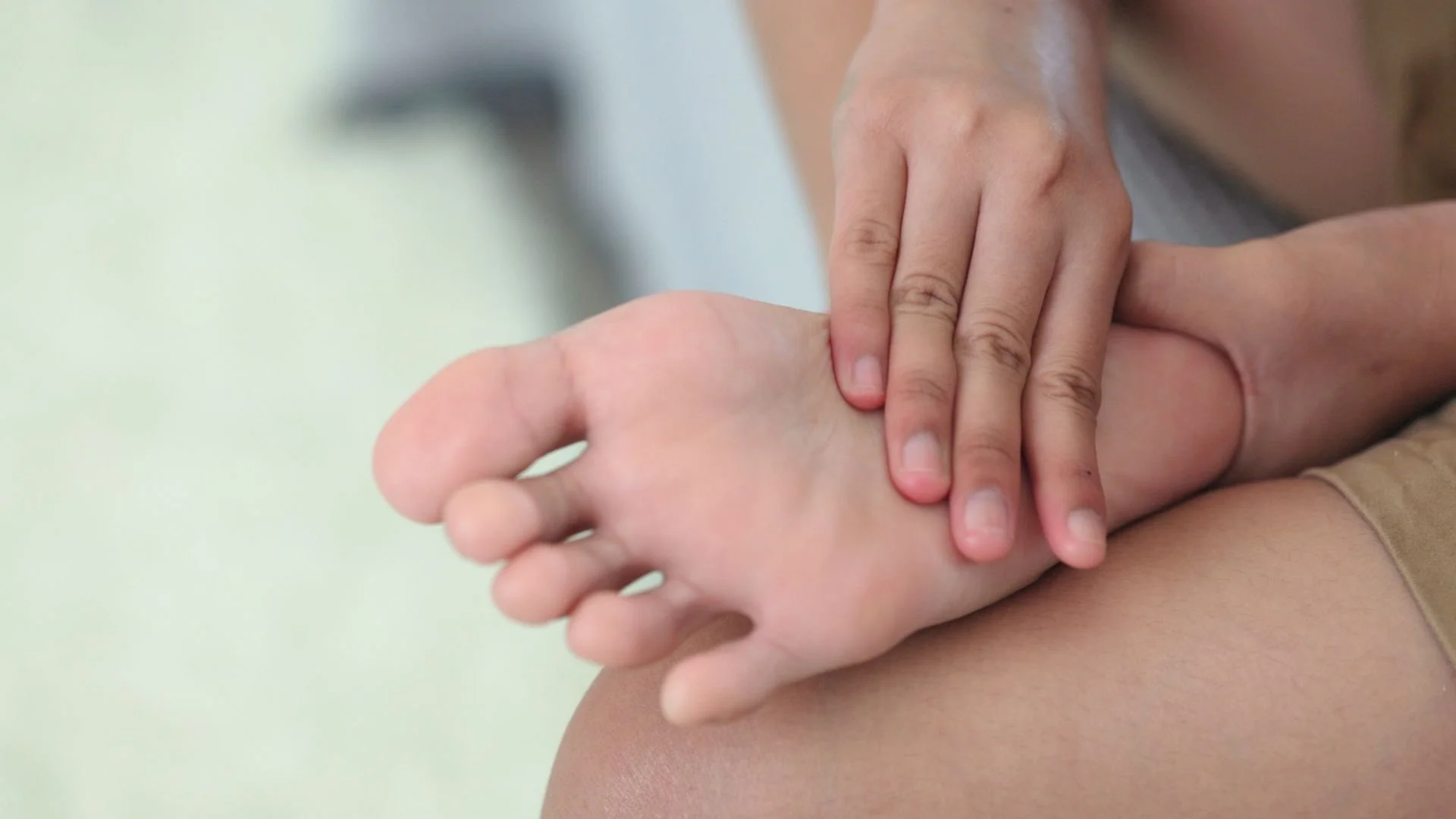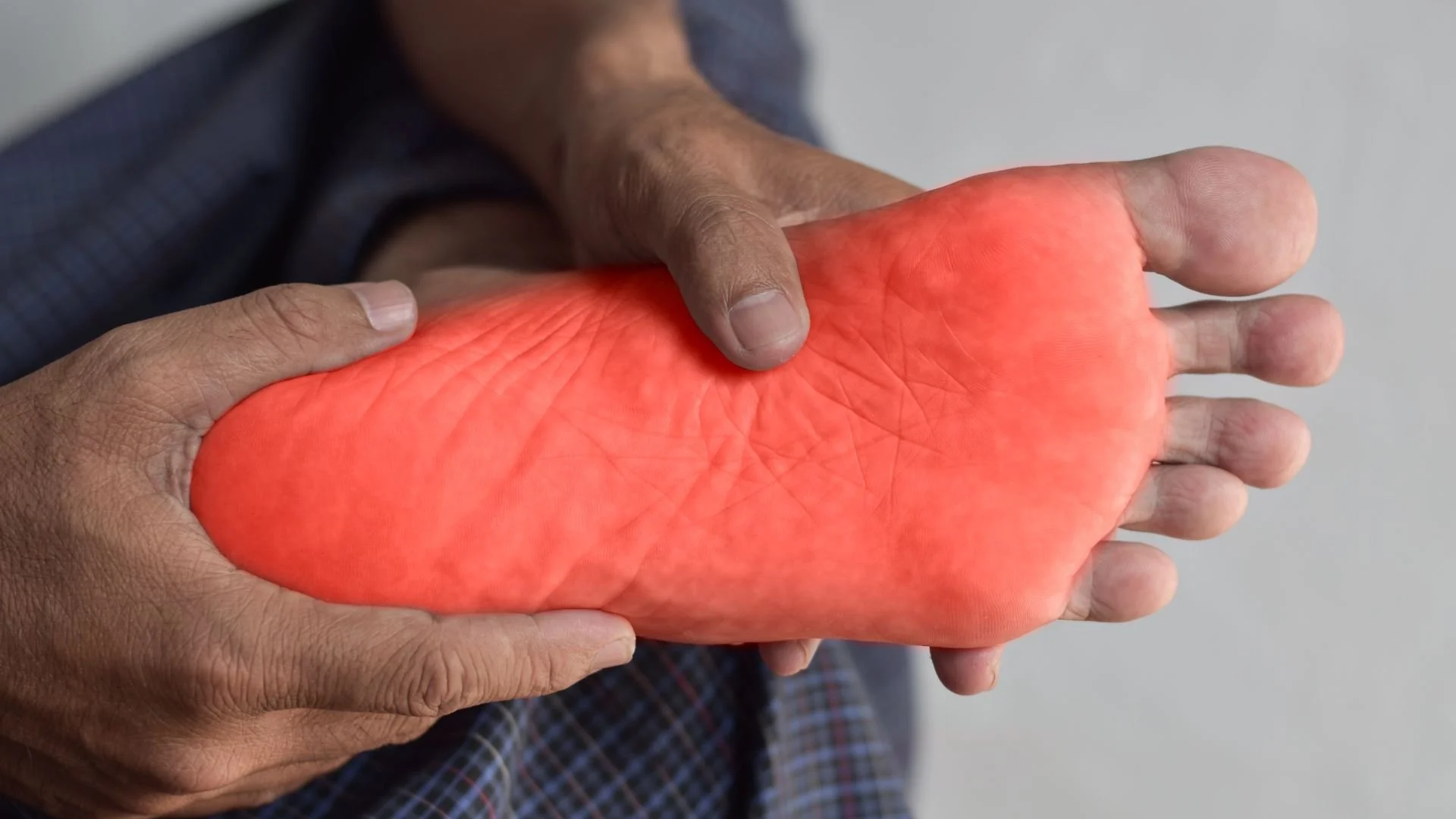
Plantar Fasciitis Treatment in Gastonia, NC
Find Relief at Carolina Foot and Ankle Specialists
Are you experiencing persistent heel pain, especially with your first steps in the morning or after periods of rest? You might be suffering from plantar fasciitis, a common but often debilitating condition.
At Carolina Foot and Ankle Specialists in Gastonia, NC, we understand how much heel pain can impact your daily life. Our experienced podiatrists are dedicated to accurately diagnosing your condition and providing effective, personalized treatment plans to help you find lasting relief and get back on your feet comfortably.
We combine our expertise with a compassionate approach to ensure you receive the highest standard of care right here in the Gastonia community.

Understanding Plantar Fasciitis: What Is It?
Plantar fasciitis is an inflammation of the plantar fascia, a thick band of tissue that runs across the bottom of your foot, connecting your heel bone to your toes.
This crucial ligament supports the arch of your foot and acts as a shock absorber. When too much stress or tension is placed on the plantar fascia, it can become irritated, inflamed, and painful, particularly where it attaches to the heel bone.
While it can affect anyone, it's a leading cause of heel pain among active individuals and those with certain foot mechanics.

Common Causes of Plantar Fasciitis
Plantar fasciitis often develops over time due to a combination of factors that place excessive strain on the plantar fascia. Identifying the root cause is essential for effective treatment. Common contributing factors include:
Overpronation (Flat Feet): When your foot rolls inward excessively during walking, it can stretch the plantar fascia beyond its normal limit.
High Arches: Conversely, feet with very high arches may not absorb shock effectively, placing increased stress on the fascia.
Tight Achilles Tendon or Calf Muscles: A tight Achilles tendon can limit ankle flexibility and increase tension on the plantar fascia.
Improper Footwear: Shoes that lack adequate arch support, cushioning, or are worn out can contribute to the condition. This includes frequently wearing flat shoes or high heels.
Sudden Increase in Activity: A rapid increase in the intensity or duration of physical activity, especially running or standing, can overload the fascia.
Occupations Requiring Prolonged Standing: Jobs that involve many hours on your feet, such as teaching, factory work, or retail, can contribute to chronic strain.
Obesity: Excess body weight places increased stress on the plantar fascia, making it more susceptible to inflammation.
Age: While it can affect people of all ages, plantar fasciitis is most common in individuals between 40 and 60.
Recognizing the Symptoms of Plantar Fasciitis
The symptoms of plantar fasciitis are often distinctive, though their intensity can vary. If you experience any of the following, we encourage you to schedule a consultation with our Gastonia podiatrists:
Sharp, Stabbing Heel Pain
This is the hallmark symptom, typically felt on the bottom of the heel, near the arch.
"First Step" Pain
The pain is usually most severe with the first few steps in the morning, after getting out of bed, or after a period of rest (e.g., sitting for a long time). The pain often lessens with activity but can return after prolonged standing or exercise.
Pain After Activity
While exercise might feel better during the activity, the pain often flares up afterwards, not during.
Tenderness to Touch
The bottom of your heel may be tender when pressed.
Stiffness
A feeling of stiffness in the arch of your foot.
Effective Treatments for Plantar Fasciitis at Carolina Foot and Ankle Specialists
At Carolina Foot and Ankle Specialists, your comfort and recovery are our priority. After a thorough examination and accurate diagnosis, our Gastonia podiatrists will develop a personalized treatment plan aimed at reducing pain, promoting healing, and preventing recurrence. Our comprehensive approach may include a combination of the following:
Conservative Treatments (First Line of Defense):
Rest and Activity Modification: Reducing activities that aggravate the pain is crucial for initial healing.
Ice Therapy: Applying ice packs to the affected area can help reduce inflammation and pain.
Stretching Exercises: Specific stretches for the plantar fascia, Achilles tendon, and calf muscles are vital for increasing flexibility and reducing tension. We'll guide you through the proper techniques.
Custom Orthotics: As a specialized service at our practice, we provide custom-molded orthotic inserts designed to support your arch, correct biomechanical imbalances, and evenly distribute pressure across your foot. These are highly effective in providing long-term relief and preventing future flare-ups.
Supportive Footwear: Recommendations for shoes that offer adequate arch support and cushioning.
Night Splints: Wearing a night splint can gently stretch the plantar fascia and Achilles tendon overnight, helping to alleviate morning pain.
Anti-inflammatory Medications: Over-the-counter or prescription medications may be recommended to reduce pain and inflammation.
Physical Therapy Referrals: For more complex cases, we may recommend physical therapy to strengthen muscles and improve flexibility.

Advanced Treatment Options (When Conservative Methods Aren't Enough):
Corticosteroid Injections
In some cases, an anti-inflammatory injection directly into the plantar fascia can provide significant pain relief, though this is often used sparingly.
Regenerative Medicine
As part of our commitment to innovative care, we offer regenerative medicine options like stem cell injections.
These advanced therapies aim to stimulate the body's natural healing processes and repair damaged tissue, offering a cutting-edge solution for persistent plantar fasciitis.
Minimally Invasive Surgery
For a small percentage of patients who do not respond to conservative and advanced non-surgical treatments, our podiatrists are skilled in minimally invasive surgical techniques.
These procedures aim to release tension on the plantar fascia, often with smaller incisions and potentially faster recovery times compared to traditional surgery. We will discuss if this is a suitable option for your unique situation.
If heel pain is preventing you from enjoying your favorite activities or simply walking comfortably, don't wait. The earlier plantar fasciitis is treated, the better the outcome.
Contact Carolina Foot and Ankle Specialists in Gastonia, NC, today to schedule your comprehensive evaluation. Our dedicated team is ready to help you take the first step towards a pain-free life.



